- November 23, 2024
-
-
Loading

Loading
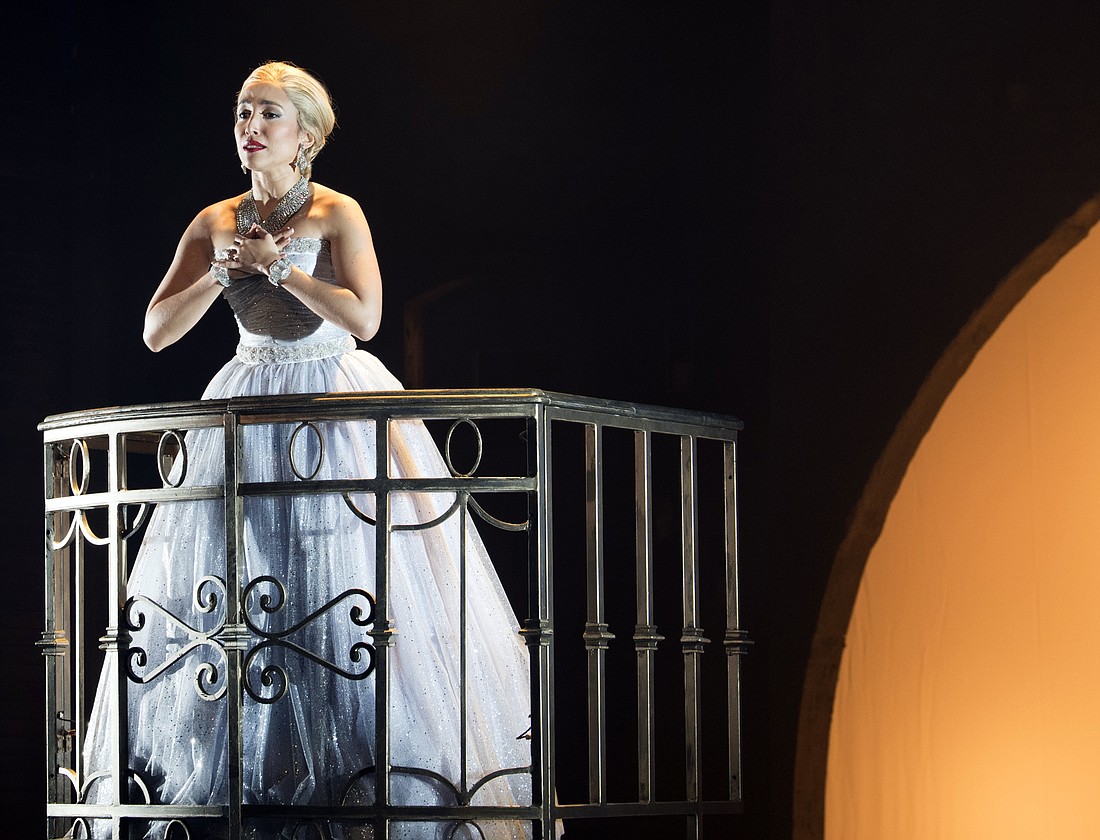
Behind every great dictator, there’s a great woman. Eva Peron was the woman behind President Juan Peron, Argentina’s strongman leader in the 1940s and ’50s.
The charismatic actress was more than a pretty face. Eva rose from the depths of poverty and created a cult of personality that put Juan Peron in power — and kept him there. In 1976, composer Andrew Lloyd Webber and lyricist Tim Rice told the story of her rise and fall in the musical “Evita.” In 2017, Josh Rhodes is directing and choreographing that same musical at the Asolo Rep. But, according to Rhodes, it’s not the same. Even if you think you’ve seen it before, you haven’t.
I look for an underlying mythology that makes it greater than one person’s story. When reading through Tim Rice’s libretto, it suddenly struck me: Evita’s story is the Icarus story! Here’s a woman who was born in extreme poverty. Her driving ambition drove her to great heights — and when she fell, she fell hard. Evita burned out early.
Thank you. The musical cracked open for me once I realized it! Reading through libretto, I was amazed by all of Rice’s references to light, the sun, burning and falling. The insight of the Icarus myth allowed me to go beyond historical biography — and explore larger themes with an almost Shakespearean quality.
Yes, in terms of telling Evita’s story. No, in terms of presenting Evita as a character. We really try to demythologize her. Evita Peron wasn’t a myth. She was a real human being who was trapped in a myth.
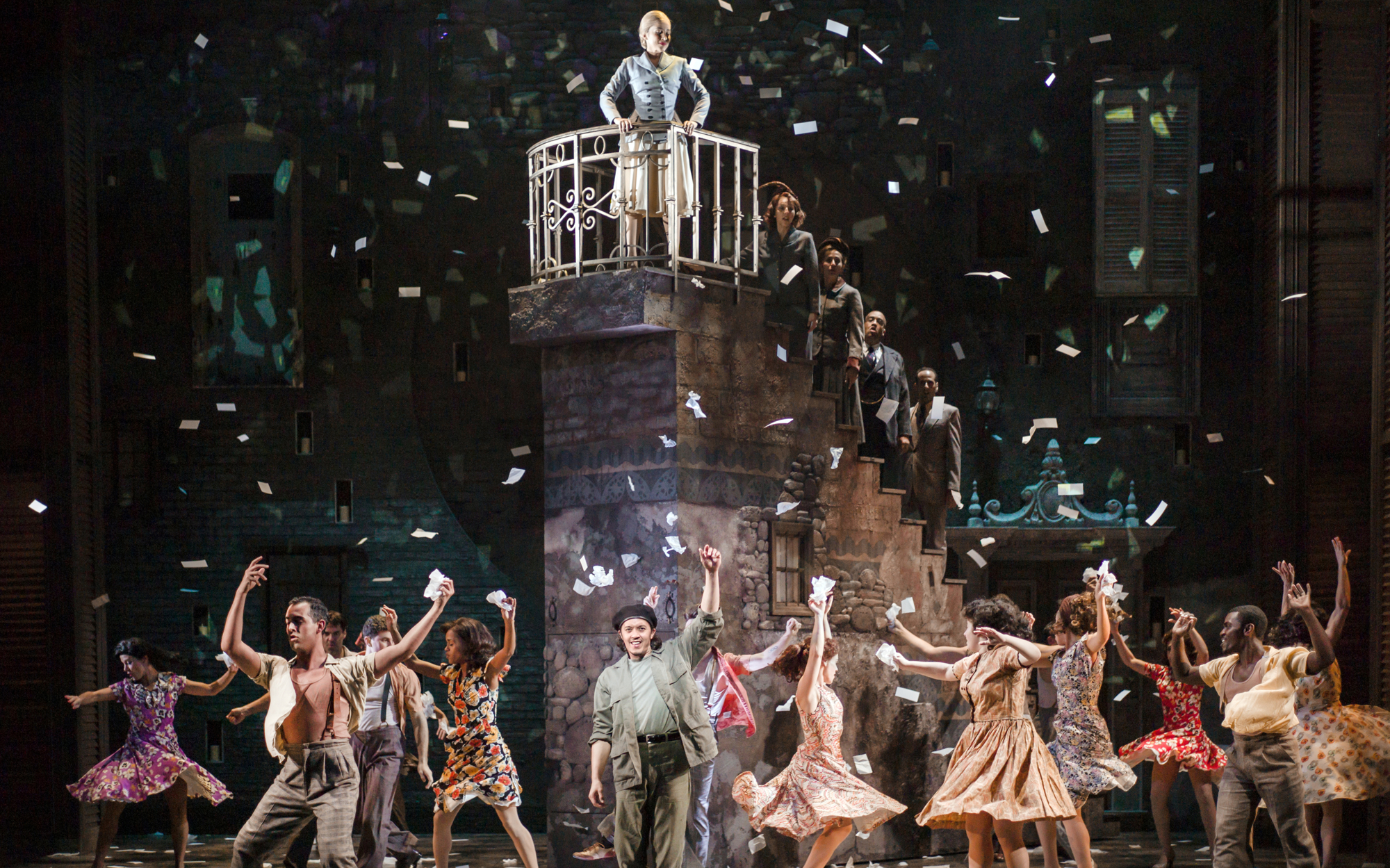
A little of both, I think. Either way, a black-and-white mythology still surrounds Evita Peron — especially in Argentina. She’s adored and hated by millions to this day. Evita remains a divisive figure, even in 2017.
I think because Peronism was a divisive political movement. Evita Peron had charisma and the common touch. Thanks to her charms, Juan Peron rose to great heights. Some people blame her; others blame her followers. Our production doesn’t claim to settle the issue. But we try to allow Evita to shine through as a real, multifaceted person.
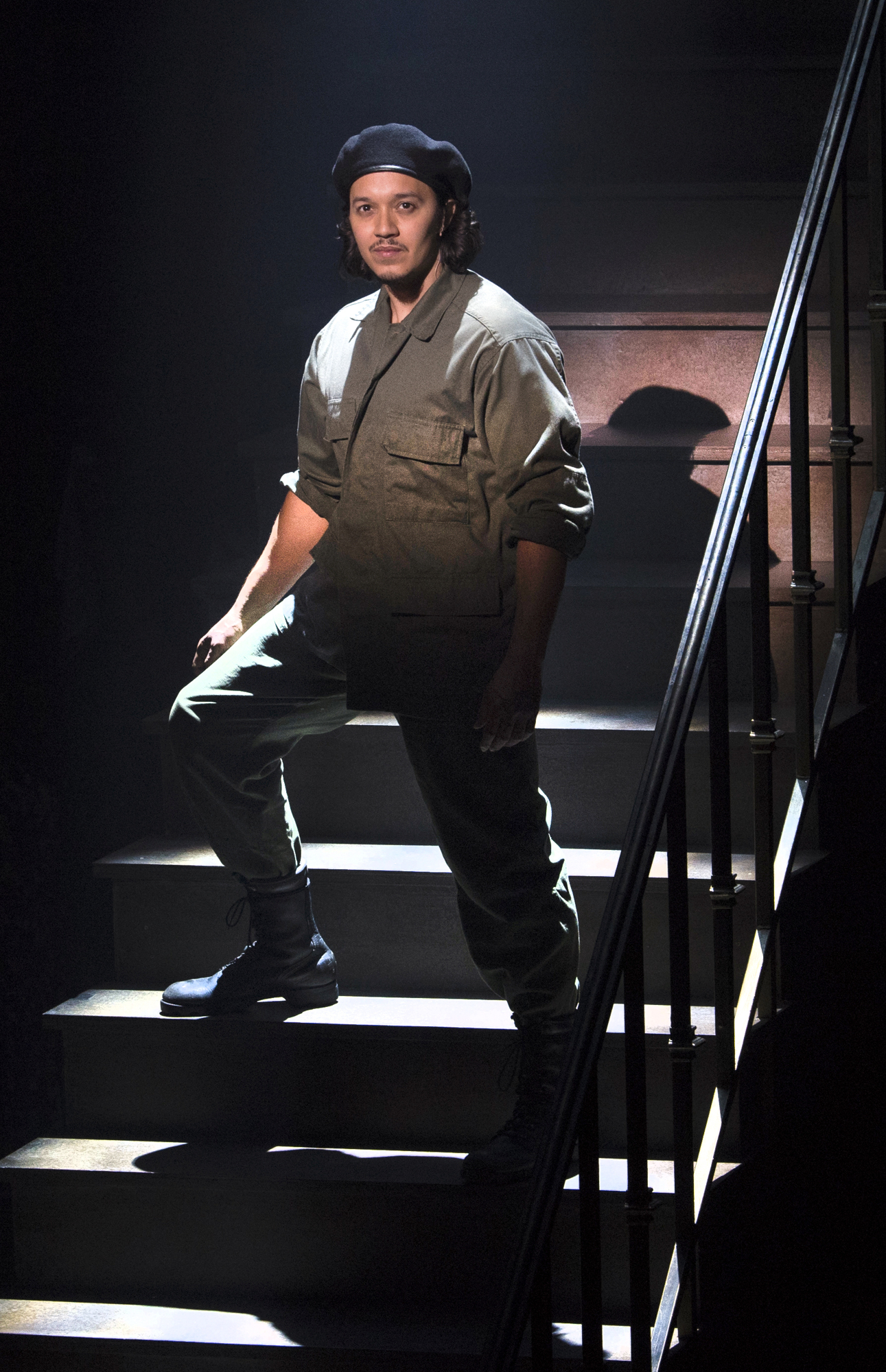
Ana shows the gradual development of her character — the stages of Evita’s evolution. Ana’s portrayal doesn’t start off at full intensity. After all, Evita’s only 15 years old when the musical begins! She’s Eva Duarte — a teenaged girl from a poor village, not the Evita she would become.
No. But she’s ambitious — in the way that a woman born in poverty would have to be in that time and place. The ruling class of Argentine society wouldn’t allow a lower-class woman to be seen, let alone rise to power.
By reinventing herself. Ana’s performance shows you all the different steps — she really gives her character an arc. You can watch Evita teach herself how to behave, how to talk and how to move through the different levels of her society. Ana has a cunning intellect — and she uses it to show Evita’s cunning intellect. Her character goes through a process of discovery and transformation. I think that’s what people come to the theater to see.

I think that’s the brilliance of Ana’s portrayal. She shows Evita’s vulnerable side — and that keeps her sympathetic. Her character isn’t wearing a bulletproof vest. Evita can be hurt — and the persona she creates is her way of surviving. To hold her own, Evita had to fight back; she had to be scrappy. At times, you admire her fighting spirit; at other times, you’re appalled. Evita’s not a saint; she’s not a devil. But with all her contradictions, her heart was in the right place. Ana makes a great case for her character.
He’s the narrator, the critic and conscience of the musical. Che is the yang to Evita’s yin. He’s being played by an amazing actor — Justin Gregory Lopez. He’s discovering surprising nuances in his character. His Che is not the strident figure you might expect.
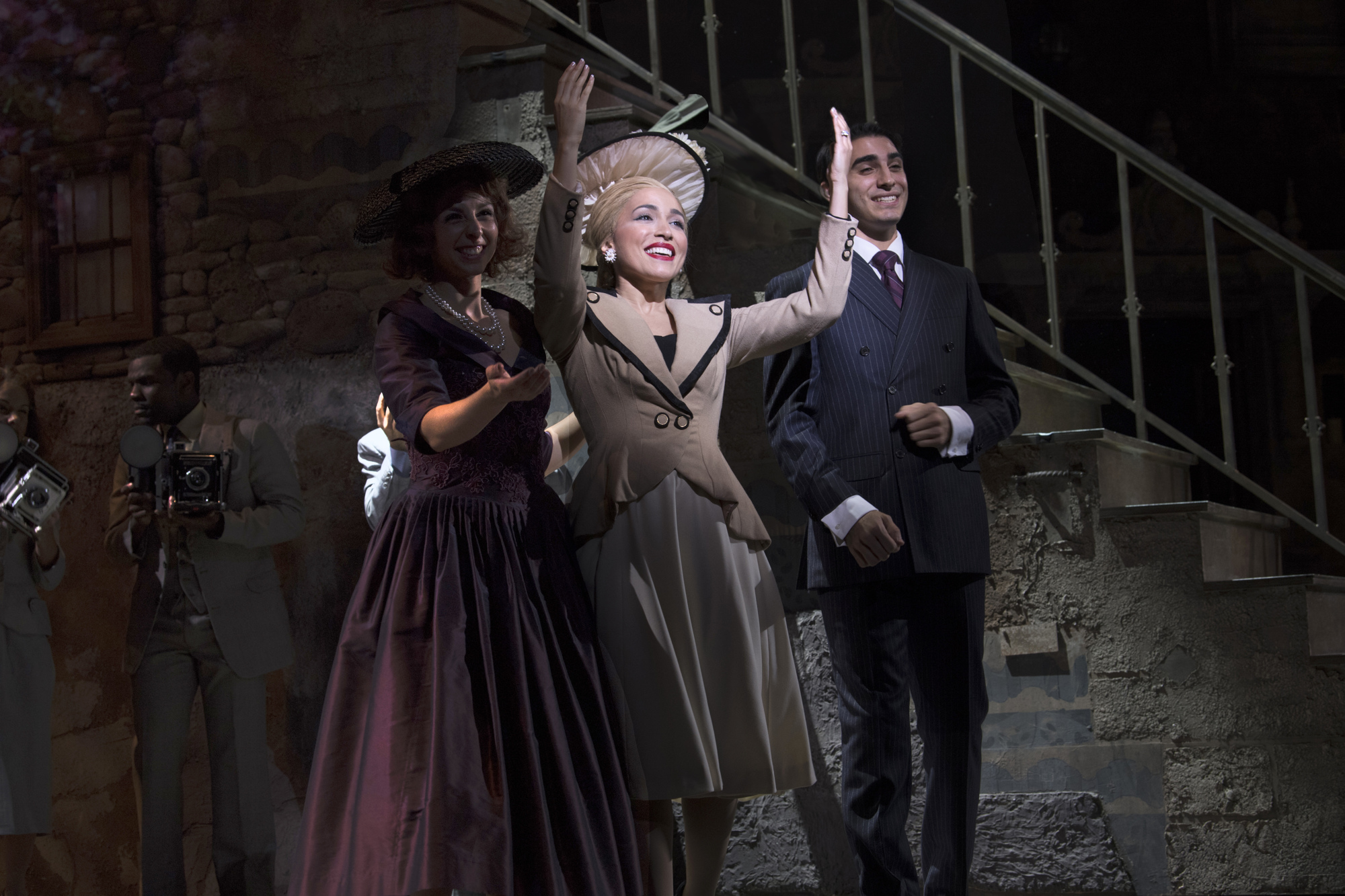
I’d say it’s great storytelling. Che is such an iconic figure to the American mind. In terms of storytelling, that recognition creates wonderful shorthand — and Rice took full advantage of that. Che strides on stage in his fatigues. American audiences immediately know where he’s coming from. He’s anti-government, anti-capitalism; he’s impolite; he has a strong opinion.
Yes, exactly. The libretto is fast and furious. But Che is always there to guide you through.
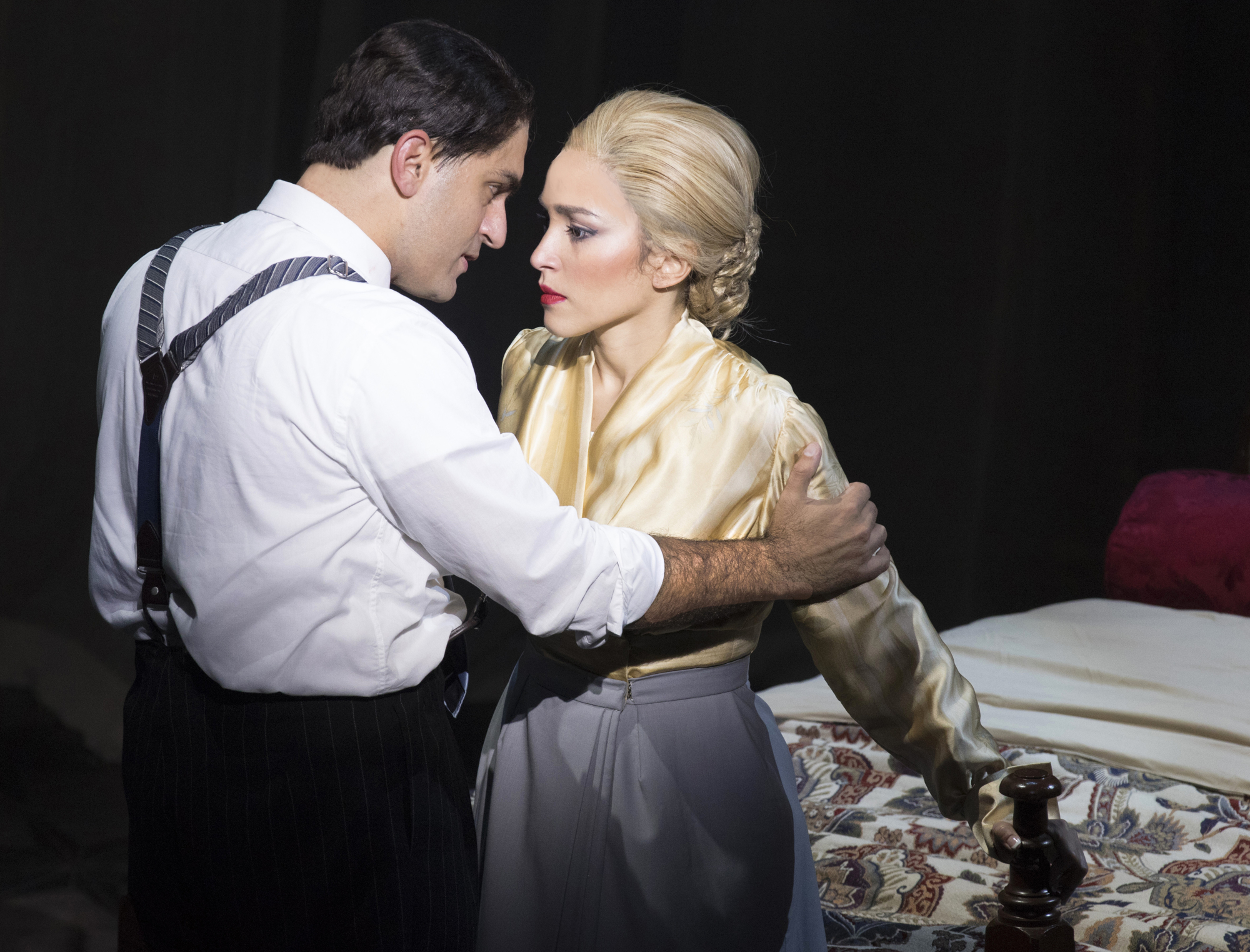
The director in me wants to tell the story; the choreographer in me wants to figure out a cool, stylized way to help the audience navigate through the story. As I said, the story libretto comes at you a mile a minute. But you can pack a lot of information in a brief dance number. Dance is an excellent tool to highlight the story points and keep the audience clear.
He’s astonishing — and he was so young when he wrote this! And there’s such a wonderful economy to his work. The whole musical is less than two hours. If we created an original musical today about Evita Peron, it would probably be twice as long.
I’m proud of every aspect — lighting, sound, costumes, set design and so on. The talented people I’m working with are all first-rate. But I’m especially proud of our actors. It’s a diverse cast of mostly Latin American actors. They bring a heartfelt authenticity and passion to the story. They amaze me every day!